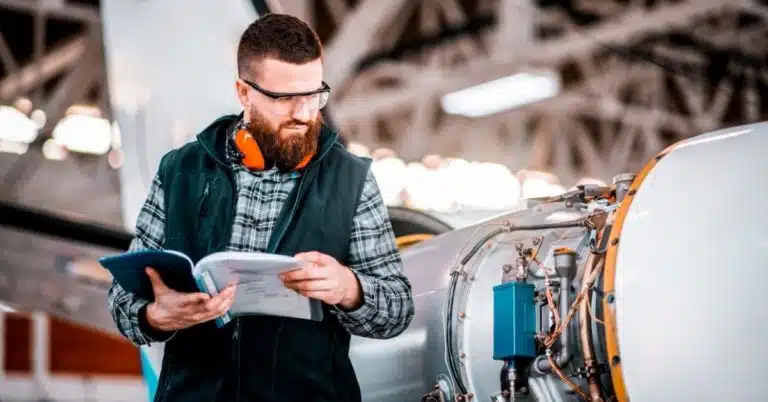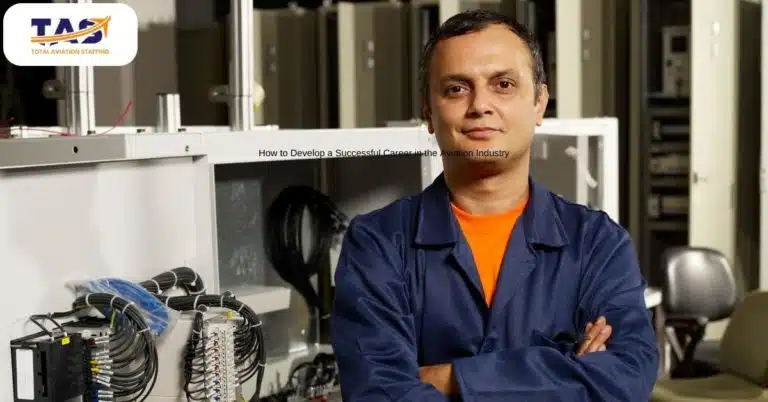The Importance of Teamwork and Independence in Mobile Support Unit Aircraft Technician Work

The aircraft technician field is one of the most important aspects of air travel, and mobile support unit (MSU) technicians are a critical part of the team. MSU technicians play an integral role in ensuring that aircraft maintenance, repair, and inspection needs are met quickly and accurately. This type of work requires both teamwork and independent thought to be successful.
In this blog, we’ll explore the importance of teamwork and independence in MSU aircraft technician work, and how they can complement each other to ensure success. We’ll also discuss some tips on how to make the most out of both aspects of the job. Finally, we’ll talk about why these skills are a valuable asset to any MSU technician, and how they can help you maximize your success in the field. Read on to learn more about the importance of teamwork and independence in MSU aircraft technician work!
1. Improved Efficiency Through Collaboration
Working as an aviation technician in a mobile support unit requires both teamwork and independence since technicians need to collaborate on complex tasks and have the autonomy to independently solve problems. While multi-person teams can draw on multiple perspectives for better decision-making, as well as relying on the strengths of individual technicians, there may be an obvious efficiency gain from collaborative aviation work.
Sharing information and lessons learned from previous aircraft repairs helps team members work through specific issues in a more informed way. By having different aviation technicians focus on their own areas of expertise, projects can be completed faster with a higher degree of skillful execution. Instead of simply knowing what was done right or wrong in a past job, team collaboration helps pinpoint exactly which steps were taken to prevent mistakes from happening again while allowing teams to keep learning and refining approaches to aviation work.
With improved efficiency through increased collaboration among aviation technicians in mobile support units, aircraft can receive properly maintained service while allowing teams to continue raising the bar of aviation excellence.

2. Increased Productivity by Sharing Tasks and Resources
Working in aviation requires a unique blend of teamwork and independence. Mobile Support Unit Aircraft Technicians are no exception to this concept. By working together, teams of technicians can share tasks and resources efficiently, increasing their productivity significantly.
Teamwork allows members to divide up the workload into sub-tasks that can be completed more quickly than trying to do it all as one individual. Teams are well-positioned to access resources faster than any single technician ever could – allowing for that increased productivity.
Lastly, team collaboration leads to richer discussions which unlock solutions better tailored to aviation customers’ needs. For aviation technicians looking to increase their productivity, investing in teamwork and independence is integral to their success.

3. Enhanced Problem-Solving Skills From Team Members With Varying Perspectives and Expertise
Working in a mobile support unit for aircraft technicians requires both teamwork and independence, as each team member brings different perspectives to the table. By pooling together diverse knowledge bases, teams are able to troubleshoot creatively and thoughtfully when repairing aircraft.
Five key problem-solving skills that can be enhanced by a team with varying perspectives and expertise include:
Analytical Thinking – Team members are able to tackle problems from multiple angles by combining different methods of analysis. This allows for improved decision-making in the context of aircraft repair.
Creative Problem Solving – By drawing on varying viewpoints, the team can explore unique solutions that might not be considered when working alone.
Strategic Planning – Teams are better positioned to plan for both short-term and long-term aircraft maintenance needs.
Effective Communication – Members have the opportunity to discuss their ideas openly, which can help build consensus around solutions more effectively than when done independently.
Mentorship – With a variety of expertise and experience levels, teams are able to provide support and guidance on complicated problems.
Team collaboration in a mobile support unit can help aircraft technicians become more efficient, productive, and creative with their problem-solving skills. With the right tools and effective communication, these teams are well-positioned for success in the aviation industry.

4. Sharing of Knowledge for Better Technical Understanding and Practices
Career growth in aviation is often found through learning from one another and being part of a team environment. Mobile Support Units are the perfect space for aircraft technicians to share their knowledge and learn from those around them.
By sharing experiences, teams can better understand technical concepts and practices that would otherwise be difficult to grasp alone. Learning occurs through mutual understanding, as team members have the chance to observe and discuss challenges in detail. As a result, aircraft technicians can keep up with industry trends from the comfort of their own workplace.
In addition to technical knowledge, teams also benefit from a sharing of best practices that can help streamline efficiency and effectiveness on the job. Through increased collaboration, teams are able to combine their individual skills and knowledge to create a more powerful unit.

5. Improved Communication Between Technicians Resulting in Greater Customer Satisfaction
Communication is essential in any team environment, but especially for aircraft technicians working together in a mobile support unit. Clear and consistent communication ensures that instructions are properly understood and tasks are completed on time.
Improved communication also helps to reduce discrepancies between each technician’s work – resulting in greater customer satisfaction. With better communication, teams are better able to coordinate and complete work in a timely manner. This allows technicians to focus on what’s important: providing high-quality aircraft service that meets customer needs.
In short, effective communication is the cornerstone of success for aircraft technicians working in a mobile support unit. By investing in strong communication skills, teams can help ensure customer satisfaction and bolster the success of their unit.

6. Stronger Safety Culture Developed Through Working Together as a Team to Ensure Compliance Requirements Are Met
Safety is a top priority for any aircraft maintenance team. Working together in a mobile support unit allows technicians to build stronger safety cultures through close collaboration and communication.
By working as a team, technicians can more easily identify potential risks and mitigate them before they become an issue. In addition, teams have the chance to develop standardized safety protocols – ensuring that all technicians are compliant with the requirements of their employers and regulatory organizations.
Mobile support units can be an important tool for aircraft technicians to create a safe working environment that meets industry standards. With strong collaboration and communication, teams can ensure compliance without sacrificing productivity or quality.

7. Building Trust Among Technicians That Leads to Improved Morale, Job Satisfaction, and Performance Levels
Working as part of a team in a mobile support unit also allows technicians to build trust and strong relationships with each other. This helps them create an environment where everyone feels comfortable speaking up, sharing experiences, and asking questions.
By fostering trust, aircraft technicians are able to work more efficiently and effectively – resulting in improved morale, job satisfaction, and performance levels. With a higher level of trust among technicians, teams can more easily coordinate tasks, delegate responsibilities, and tackle difficult challenges on the job.
Mobile support units are an important tool for aircraft technicians. By working together in a team environment, technicians can share experiences, learn from one another, improve communication, develop stronger safety cultures, and build trust – all of which lead to greater job satisfaction and better performance levels. With the right support, teams can ensure their success in the ever-changing aircraft maintenance industry.

8. Increased Self-Confidence When Each Individual Contributes Their Unique Strengths to the Team’s Success
Working in a mobile support unit can also help technicians to increase their self-confidence. When each individual has the opportunity to contribute their unique strengths to the team’s success, it helps boost morale and build confidence in the skills of everyone involved.
Teams are often faced with difficult situations that require creative solutions. By working together, technicians can brainstorm ideas and find solutions that are effective and realistic. This helps build confidence in the team’s ability to work through challenging scenarios and reach successful outcomes.
By investing in strong communication skills and forming close working relationships, aircraft technicians can use mobile support units to create a more confident workforce with improved morale and job satisfaction. With the right level of support and collaboration, teams are able to tackle difficult tasks with ease – ensuring their success in the aircraft maintenance industry.

In Conclusion
The use of mobile support units for aircraft maintenance is an invaluable tool for technicians. Working as part of a team in these units can help build safety cultures, foster trust among technicians, and increase individual self-confidence. With strong communication and collaboration, teams are able to ensure their success in the ever-changing aircraft maintenance industry. The use of mobile support units is an essential component in any aircraft maintenance program.
